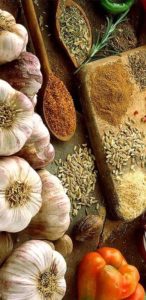Without a doubt there are natural remedies for almost all ailments or illnesses However there are a great many myths about miracle cures for acne, back pain, arthritis and so on Often you will be better saving your money and using natural methods for your aliments, aches and pains.
From our list of herbs and spices, the following are recommended for Arthritis:
Scroll down for links.
- American Ginseng
- Asparagus Root
- Barberry Root
- Black Cohosh
- Black Seed Oil
- Bladderwrack
- Boswellia
- Bromelain
- Bupleurum Root
- Burdock Root
- Capsicum
- Carrot
- Cats Claw
- Cayenne
- Celery Seed
- Chamomile
- Chondroitin Sulfate
- Citrus Bioflavonoids
- Curcumin
- Curcumin and Turmeric Root
- Devils Claw
- Fenugreek
- Feverfew
- Flaxseed
- Ginger
- Ginkgo Biloba
- Glucosamine Sulfate
- Grapeseed
- Green Tea
- Hemp Oil
- Honeysuckle
- Horsetail
- Juniper Berry
- MSM
- Nettle
- Omega-3 Fatty Acids
- Queen Of The Meadow
- Quercetin
- Sarsaparilla
- Sea Cucumber
- Turmeric
- Turmeric Root
- Wild Yam
- Willow
- Willow Bark
- Yucca
Natural Cures and Remedies for Arthritis
Herbal Treatment for ArthritisPsoriatic Arthritis
Rheumatoid Arthritis Natural Treatment
Symptoms and Treatment of Arthritis
Whats Good for Arthritis
In another study Zurier doubled the dosage of GLA, giving fifty-six patients either 2.8 grams daily of the supplement or placebos for six months. This higher dosage resulted in significant improvements-at least a 25 percent improvement in four of eight measures of rheumatoid arthritis severity. For a second six-month period, Zurier gave GLA to all of the patients, and improvements were noted across the board. The group originally given GLA continued to improve over the course of a year, with more than three-fourths of the patients benefiting from improvements in their arthritis symptoms.

Activities (Goldenseal) – Alterative ; Amebicide ; Analgesic ; Antiacetylcholinesterase ; Antibacterial ; Antialzheimeran ; Antiarthritic ; Anticancer ; Anticariogenic ; Anticonvulsant ; Antihelicobacter ; Antiinflammatory ; Antimitotic ; Antiperiodic ; Antiperistaltic ; Antipyretic ; Antisecretory ; Antiseptic ; Antitrypanosomic ; Antitussive ; Antiulcer ; Aperient ; Aperitif ; Astringent ; Bilirubinolytic ; Bitter ; Cardiotonic ; Choleretic ; Collyrium ; Deliriant ; Depurative ; Detergent ; Digestive ; Diuretic ; Emetic ; Emmenagogue ; Fungicide ; Hallucinogen ; Hemostat ; Hepatotonic ; Hypertensive ; Hypoglycemic ; Hypotensive ; Immunostimulant ; Insectifuge ; Laxative ; Leukocytosis ; Mycosis ; Myostimulant ; Oxytocic ; Protisticide ; Panacea ; Secretagogue ; Sedative ; Sialagogue ; Stomachic ; Tonic ; Trophorestorative ; Uterotonic ; Vasoconstrictor ; Vibriocide ; Vulnerary .
American Ginseng, Asparagus Root, Barberry Root, Black Cohosh, Black Seed Oil, Bladderwrack, Boswellia, Bromelain, Bupleurum Root, Burdock Root, Capsicum, Carrot, Cats Claw, Cayenne, Celery Seed, Chamomile, Chondroitin Sulfate, Citrus Bioflavonoids, Curcumin, Curcumin and Turmeric Root, Devils Claw, Fenugreek, Feverfew, Flaxseed, Ginger, Ginkgo Biloba, Glucosamine Sulfate, Grapeseed, Green Tea, Hemp Oil, Honeysuckle, Horsetail, Juniper Berry, MSM, Nettle, Omega-3 Fatty Acids, Queen Of The Meadow, Quercetin, Sarsaparilla, Sea Cucumber, Turmeric, Turmeric Root, Wild Yam, Willow, Willow Bark, Yucca
In this chapter you have learned about the impressive anti-inflammatory properties of vitamin E. It lowers levels of CRP and many other pro-inflammatory compounds, and it reduces the risk of coronary artery disease. In addition, vitamin E supplements can, for many people, ease the symptoms of rheumatoid arthritis, allergies, and Alzheimer’s disease. In the next chapter you will read about three nutrients that play a central role in maintaining and rebuilding tissues in the body.
Activities (Ginkgo) – Antiaggregant ; Antiallergic ; Antialzheimeran ; Antianaphylactic ; Antiarrhythmic ; Antiarthritic ; Antiasthmatic ; Anticancer ; Anticapillary Fragility ; Anticonvulsant ; Antidementic ; Antidepressant ; Antiedemic ; Antiinflammatory ; Antiischemic ; Antimastocytotic ; Antioxidant ; Antiseptic ; Antispasmodic ; Antitussive ; Anxiogenic ; Anxiolytic ; Astringent ; Bronchodilator ; Cardioprotective ; Cerebrostimulant ; Cholinergic ; Circulostimulant ; Convulsant ; Hypolipidemic ; MAOI ; Memorigenic ; Neurogenic ; Neuroprotective ; Nootropic ; Peripheral Stimulant (FT69:195); cGMP-Phosphodiesterase Inhibitor ; Radioprotective ; Thrombolytic ; Vasodilator ; Vasoprotective ; Vermifuge .
According to Loren Cordain, Ph.D., a researcher at Colorado State University, lectins also might trigger symptoms of rheumatoid arthritis in some people. Lectins are a family of plant proteins found primarily in legumes, but also in wheat and rice. Like gluten, lectins may cause an inflammation of the gut, leading to a more generalized immune response. Temporarily avoiding lectin-containing foods may confirm a sensitivity to them.
American Ginseng
Asparagus Root
Barberry Root
Black Cohosh
Black Seed Oil
Bladderwrack
Boswellia
Bromelain
Bupleurum Root
Burdock Root
Capsicum
Carrot
Cats Claw
Cayenne
Celery Seed
Chamomile
Chondroitin Sulfate
Citrus Bioflavonoids
Curcumin
Curcumin and Turmeric Root
Devils Claw
Fenugreek
Feverfew
Flaxseed
Ginger
Ginkgo Biloba
Glucosamine Sulfate
Grapeseed
Green Tea
Hemp Oil
Honeysuckle
Horsetail
Juniper Berry
MSM
Nettle
Omega-3 Fatty Acids
Queen Of The Meadow
Quercetin
Sarsaparilla
Sea Cucumber
Turmeric
Turmeric Root
Wild Yam
Willow
Willow Bark
Yucca
Helps release toxins, relieves gout Whenever a plant focuses on smaller spaces in the body and the connective tissues found there, it often has the ability to sweep those spaces clean of toxic build-up. e plant knows that there must be an out-with-the- old and in -with-the -new to correct imbalances of form and function. One example is the toxic accumulation of uric acid in small joints, which causes gout. Queen of the meadow works on multiple levels to accomplish many things, including inflammation reduction, pain support, and the draining of toxicity through natural pathways such as urination. It is also helpful for arthritis, rashes, rheumatism, and overall fatigue. Eases diarrhea e astringent action of queen of the meadow is helpful with diarrhea and loose
Recently Viewed
Home Remedies Swollen Feet
Home Remedies Depression
Home Remedies Bad Breath
Home Remedies Menstrual Cramps
Natural Remedies Cholesterol
Varicose Veins Home Remedies
Hair Loss Remedies
Home Remedies Ulcers
Home Remedies Bruises
Home Remedies Itching
Natural Remedies Menopause
Natural Remedies Athletes Foot
